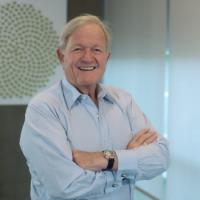Environmental Sustainability: The Role of Latin America’s Private Sector
Environmental, social, and governance (ESG) principles—the so-called “triple bottom line”—are recent criteria used to evaluate the performance of private sector companies, beyond measures of profitability or risk. The impact of companies on communities overall, and the extent to which their operations are socially and environmentally sustainable, have become important ways of judging their operations, internally and among the public at large.
Government policy has long aimed at regulating or limiting the negative environmental impacts of economic activity. But increasingly, corporations have held themselves to a higher standard, propelled by shareholder pressures to address environmental issues, new market preferences of a younger generation of consumers and investors, sensitivity to public opinion, and the values of their own leadership. Environmental issues including water use and energy consumption, social issues including responsible sourcing and community relations, and governance issues including ethics and transparency are driving companies’ own setting of standards along with public perceptions of the private sector in general. Many companies embracing ESG principles use external auditors and evaluators to assess their performance across a range of indicators.
Please join the Latin American Program and Brazil Institute on Wednesday, May 19, from 3:00 pm to 4:30 pm for a discussion of the environmental sustainability of large Latin American companies. This is the first of several conversations highlighting private sector engagement on environmental protection in Latin America.
Speakers




Moderator

Hosted By

Latin America Program
The Wilson Center’s prestigious Latin America Program provides non-partisan expertise to a broad community of decision makers in the United States and Latin America on critical policy issues facing the Hemisphere. The Program provides insightful and actionable research for policymakers, private sector leaders, journalists, and public intellectuals in the United States and Latin America. To bridge the gap between scholarship and policy action, it fosters new inquiry, sponsors high-level public and private meetings among multiple stakeholders, and explores policy options to improve outcomes for citizens throughout the Americas. Drawing on the Wilson Center’s strength as the nation’s key non-partisan policy forum, the Program serves as a trusted source of analysis and a vital point of contact between the worlds of scholarship and action. Read more


Brazil Institute
The Brazil Institute—the only country-specific policy institution focused on Brazil in Washington—aims to deepen understanding of Brazil’s complex landscape and strengthen relations between Brazilian and US institutions across all sectors. Read more


Environmental Change and Security Program
The Environmental Change and Security Program (ECSP) explores the connections between environmental change, health, and population dynamics and their links to conflict, human insecurity, and foreign policy. Read more
